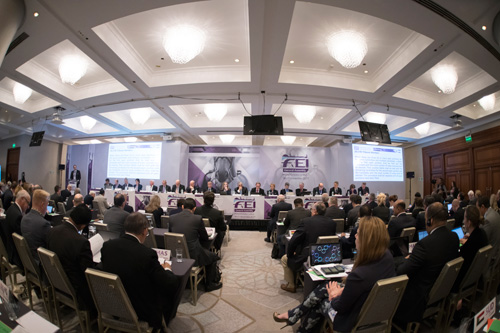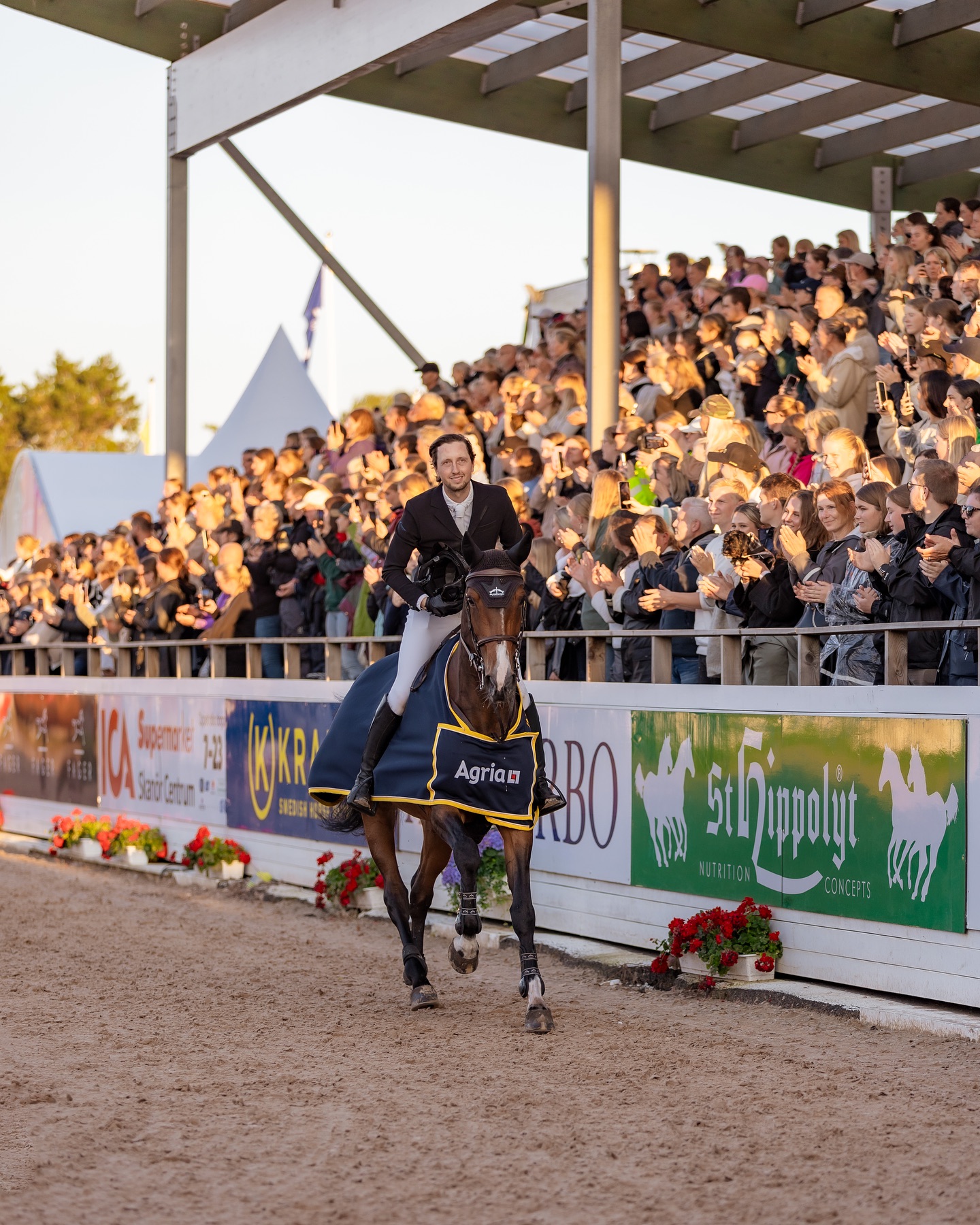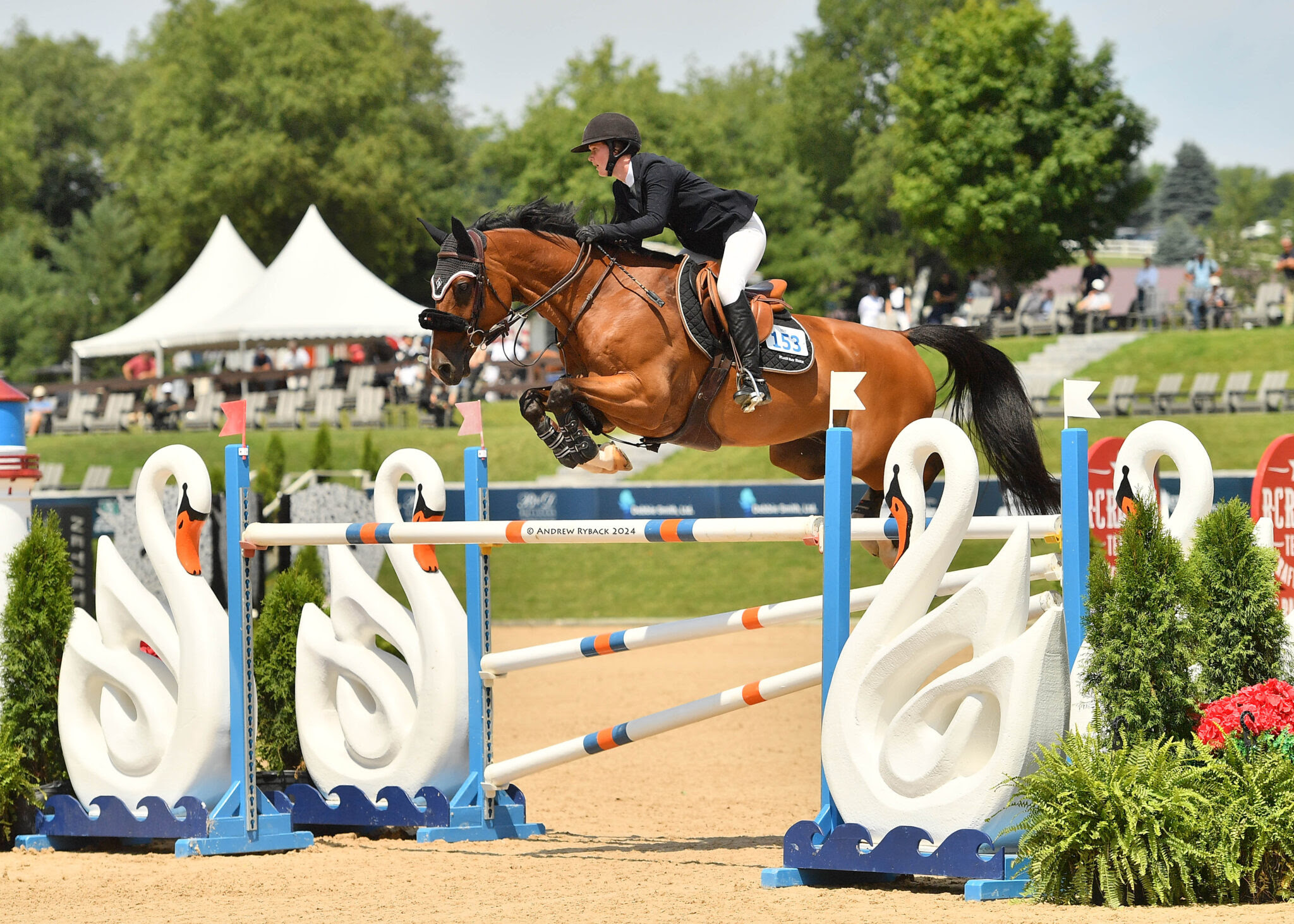In a press release the FEI has reacted on the decision of the CAS after an appeal of Mathilda Karlsson. The CAS ruling overturns the decisions of the FEI Secretary General in February 2019 and the FEI Tribunal in June 2020, meaning that all results obtained by the appellants Mathilda Karlsson (SRI) and Andrea Herck (ROM), and other participants in these competitions, are now reinstated.
As a result, the Longines Jumping Rankings are to be recalculated and there are also changes to the individual quotas for this year’s Olympic Games, meaning that Sri Lanka now has an individual place for Tokyo. Hong Kong, which had been allocated an individual slot for Jumping following the removal of the Villeneuve-Loubet results by the FEI, is now the first reserve in Group G for Tokyo. The final list of competing nations at the Tokyo Olympic Games will be confirmed on 5 July 2021.
The FEI’s original decision to annul specific competition results at the French venue was based on findings from an investigation launched by the FEI after concerns were raised about the integrity of these events. The investigation established that a total of 12 competitions counting for Olympic and Longines Rankings had been added after the Definite Entries deadline in contravention of the FEI Rules (Article 110.2.3 of the FEI General Regulations). The changes to the Schedules were submitted to the FEI by the French National Federation and were mistakenly approved by the FEI.
As a result, and in accordance with Article 112.3 of the FEI General Regulations, the FEI retrospectively removed the additional competitions, requiring a recalculation of the Olympic and Longines Rankings.
An appeal against the FEI decision was dismissed by the FEI Tribunal in June 2020, and the two athletes and the Sri Lankan National Federation then took their appeal to the CAS.
In its ruling, the Panel noted that the “protection of the integrity of FEI's events and competitions will be much more effective if they may also be cancelled retroactively, because - in many cases - the circumstances giving rise to integrity or ethical issues (such as betting, bribery or match fixing) will only become known through information that transpires as late as during or after the event”.
The Panel confirmed that Article 112.3 of the FEI General Regulations gives the FEI Secretary General the authority to remove events or competitions even with retroactive effect, providing an “effective instrument” to intervene when the FEI “becomes aware of circumstances jeopardising the integrity of an event without the FEI having had any chance to prevent such circumstances before or during the affected event”. However, the Panel ruled that it was not the purpose of Article 112.3 “to allow the FEI to retroactively rectify mistakes which entirely stem from its own sphere”, referencing the “human error” at the FEI that had resulted in approval of the updated Schedules.
The Panel referred to the two-stage approval process (National Federation and the FEI) which should ensure that “only those schedules are approved which are compliant with the relevant rules and regulations for FEI events”. While acknowledging that there had been a violation of FEI Rules, the Panel declared “the rule violation would never have occurred without the FEI's erroneous authorisation of the Updated Schedules. The Organiser could not have implemented the updates without permission of both the FFE and FEI.”
The CAS Panel ruled that as the FEI had failed to establish "justified circumstances" for the removal of the competitions, the prerequisites of Article 112.3 were not fulfilled and that, as a consequence, the FEI decision as well as the appealed decision of the FEI Tribunal are unlawful and must be reversed.
“This is a very disappointing result for the FEI, but we respect the decision as we knew that mistakes were made and the CAS decision is based on that”, FEI Secretary General Sabrina Ibáñez said. “When we decided to annul the Villeneuve-Loubet results in order to do the right thing from a sports integrity perspective, we knew there was a possibility we could lose this case on appeal, but we agreed it was a risk worth taking.
“However, we have been proactive in addressing the issues and in February 2020 implemented the online invitation system for FEI Jumping events that introduced a quota system for CSI 2* for the first time, but the rules were not in effect at the time of the events in question. In addition, Organisers of CSI2* events that wish to include competitions counting for the Longines Rankings must now invite a minimum of 50 athletes and the FEI is also reviewing the scale of Olympic Ranking points based on the number of participants in competitions.”
Source: FEI


